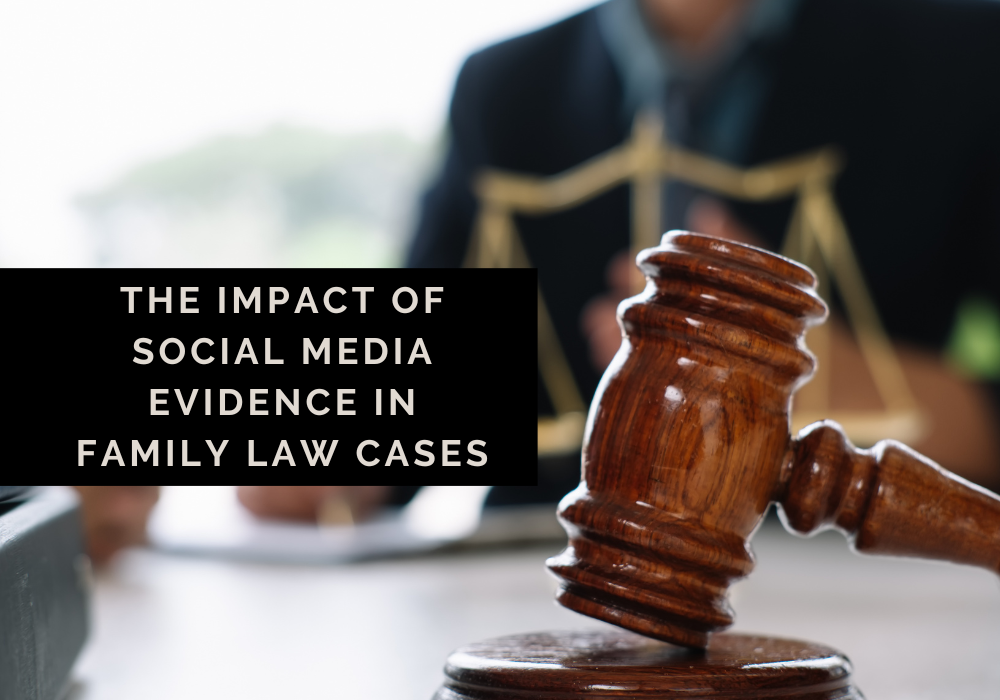In the age of online connectivity, what happens on social media has many repercussions for all of us. The consequences of social media aren’t just limited to mental and emotional issues faced by people. In fact, the shared posts and a person’s digital footprint can act as evidence in family law cases.
If you live in the Ontario province and facing a family law case where your social media profiles are used as evidence, you might need legal help. So, hire the best family lawyer in Ontario to get the justice you deserve.
In this article, you’ll learn about the impact of social media evidence in family law cases. Let’s begin!
Types of Social Media Evidence
Social media evidence comes in different forms. Some of its types are as follows:-
Text-based evidence
The social media posts, messages, and comments can pretty much sum up a person’s online life. The courts know about this, and that’s why they pay a lot of attention to an individual’s social media interactions and activities, especially in family law. The words carry a lot of power and the text-based evidence speaks a lot about the relationship between a couple.
Multimedia evidence
Multimedia evidence like photos and videos plays a big role in family law. A simple picture or a video clip can provide a lot of insights about an individual. This type of evidence is enough to change the direction of the whole case.
Location-based evidence
This evidence type is a lot more location-centric as compared to the other options. Checking into a hotel or sharing the location with someone comes under location-based evidence. With their help, movement, activities, and even habits can be tracked. Such evidence helps the lawyers understand the lifestyle and choices of a person.
Read: Finding Privacy: How Families Can Find Peace and Serenity When Living on a Busy Street
Admissibility of Social Media Evidence
Proving the validity of the social media evidence is quite a task for lawyers. For example, a person brings out a print of a tweet to the court in a family law case. How can one prove if it’s real or not? That’s basically where the challenge lies. Luckily, there are many forensic experts out there who make this task a lot easier.
Getting social media evidence permitted in the court for consideration is a battle in itself. There are many rules and standards that must be met for that evidence to find a place in the final list of evidence. The reason behind this is the court wants to ensure the proof is solid and reliable.
Privacy concerns and ethical considerations
Balancing privacy concerns and the need for justice is a very difficult task. An individual sharing some bits of information about their life might have no idea that their social media posts could be used in a family law case. The judges understand these concerns, and that’s why they make sure that before lawyers dig deep into someone’s social media, they have their consent. Without proper consent, things can get pretty messy in family law cases.
Privacy matters a lot but the right to justice is supreme. So, family law courts try to strike a balance between their legal obligations and ethical considerations. Behind every social media post, there’s a living human whose relationship can get ruined if their post is used as a piece of evidence. It’s not just about winning a case; it’s about bringing fairness into the whole process.
Impact on Custody and Visitation Cases
Let’s say, an individual is amidst a custody battle, and their social media platforms act as their report card. It is a common occurrence in courtrooms where social media posts can act as a piece of evidence.
Social media platforms play a big role in family law, as a judge can look at someone’s parenting skills through the posts they share. From the playdates to other significant moments, the courts pay attention to everything.
The social media evidence can swing both ways for a person facing a criminal law case. Positive and family-oriented posts might boost their case whereas questionable content can be an issue along with being used as evidence. It’s exactly like, someone’s online life is on trial and the judge will decide what’s in the best interest of the kids.
The impact is not only limited to the courtroom. Instead, what an individual shares in their day-to-day life might influence how the court sees their ability to co-parent and make important decisions for their kids.
Wrapping Up
It’s a reality that social media profiles have become an important piece of evidence in family law cases. In fact, this type of evidence can impact the privacy of an individual, along with the decision regarding the custody of their child. So, always remember, when you’re sharing a family moment online or any other social media post, they can be used against you in the future as a piece of evidence in a family case.

